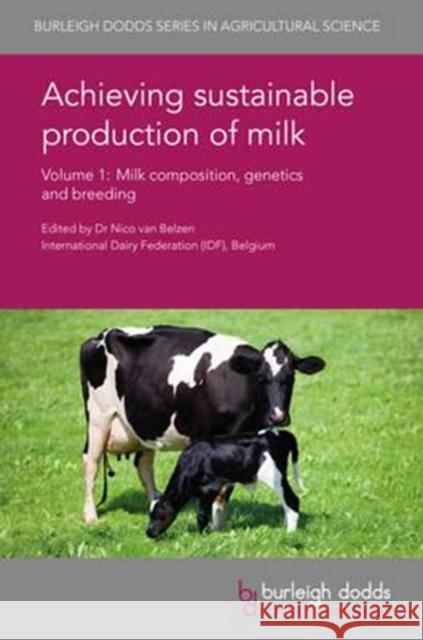Achieving Sustainable Production of Milk Volume 1: Milk Composition, Genetics and Breeding » książka
Achieving Sustainable Production of Milk Volume 1: Milk Composition, Genetics and Breeding
ISBN-13: 9781786760449 / Angielski / Twarda / 2017 / 362 str.
Cow's milk is one of the world's most important agricultural food products. Its importance in the diet is widely acknowledged and it is an essential ingredient in a wide range of foods. In meeting rising demand, more intensive dairying systems face a range of challenges such as maintaining high standards of safety in the face of the continuing threat from zoonoses entering the food chain, whilst sustaining nutritional and sensory quality. At the same time farms need to become more efficient and sustainable. Finally, farming must also meet higher standards of animal health and welfare. Smallholder systems in developing countries face problems such as poor cattle nutrition, low productivity and vulnerability to disease which impact on safety, quality, sustainability and animal welfare.Drawing on an international range of expertise, this book reviews research addressing these challenges. It begins by discussing the composition of milk including proteins and bioactive components, the wide range of ingredients produced from milk, as well as aspects sensory quality. It also reviews current understanding of genetic factors affecting protein and other aspects of milk composition, other desirable traits such as fertility and advances in breeding to achieve improvements in quality and productivity in dairy farming.Achieving sustainable production of milk Volume 1: Milk composition, genetics and breeding will be a standard reference for animal and dairy scientists in universities, government and other research centres and companies involved in milk production. It is accompanied by two further volumes which review safety, quality and sustainability issues as well as dairy herd management and welfare.











